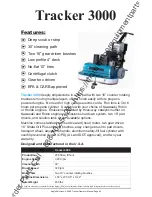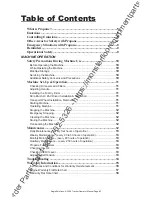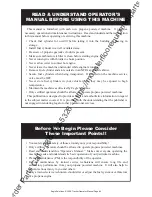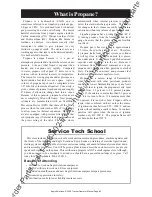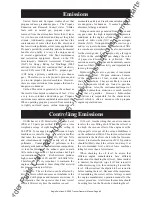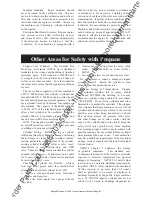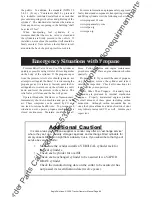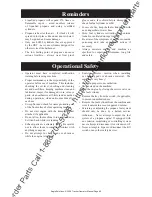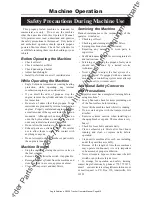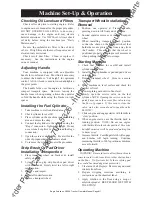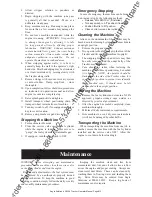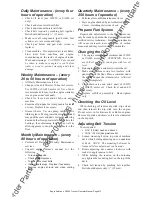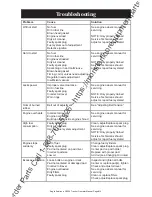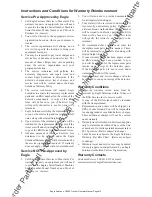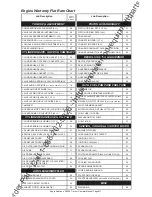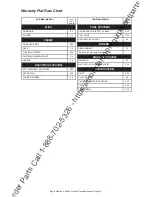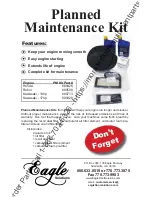
Eagle Solutions, ©2008, Tracker Operator Manual Page #8
Eagle Solutions, ©2008, Tracker Operator Manual Page #9
the public. In addition, the standard (NFPA 58
5-4.2.1 (b) says “Containers shall be protected
by a lockable, ventilated metal locker or rack that
prevents tampering with valves and pilfering of the
cylinder.” The standard also includes the distance
from any doorway or opening in the building “shall
be at least 5 feet.”
When transporting fuel cylinders it is
recommended that the service valve is closed and
the cylinders are firmly secured in the vehicle. If
installed on a machine the machine itself should be
firmly secured. Never allow a fuel cylinder to roll
around in the back of a pickup, trailer or vehicle.
For more information on propane safety, approved
fuel cylinders and components, transporting, storage
and filling cylinders visit the following web sites:
www.propane101.com
www.propanesafety.com
www.nfpa.org
www.epa.org
Additional Caution!
In some areas your propane supplier or vendor may offer an “exchange service”
where they set up a security storage cage/rack and exchange filled cylinders for
empty ones or fill them on sight from a delivery truck. If you subscribe to that type of
service be very careful to:
• Make sure the vendor installs a VERTICAL cylinder rack for
vertical cylinders.
• Check each cylinder for overfill.
• Check each exchanged cylinder to be assured it is a VAPOR
DRAW cylinder.
• Check the manufacturing date on the collar to be assured it has
not passed its recertification date (twelve years).
Emergency Situations with Propane
Pressure Relief Valve Vents: Cool the cylinder as
quickly as possible using water or a fire extinguisher
on the body of the cylinder. If the propane vapor
from the pressure relief valve should ignite do not
attempt to extinguish the flame! It is consuming the
propane gas as it is relieved. Instead, point the fire
extinguisher or water hose on the cylinder to cool it
down and lower the pressure in the cylinder. The
relief valve will close and the fire will go out.
Operator Headache, Dizziness or Nauseousness:
Immediately shut down machine and get to fresh
air. These symptoms can be caused by CO and
can lead to serious health risks. To prevent such
situations never operate propane machines in a
closed environment. Maintain ventilation at all
times. Follow machine and engine maintenance
procedures strictly. Have engine emissions checked
quarterly.
Propane Smell: If you smell the odor of propane,
stop the engine, remove the cylinder and take it
outside for inspection. Check all connections for
leaks. Inform your supervisor.
Odors Other Than Propane: Potentially toxic
emissions are produced by internal combustion
engines. Properly maintained engines produce
a small amount of these gases including carbon
monoxide. Although carbon monoxide has no
odor, the hydrocarbons do and an elevation of odor
may indicate increased CO as well. Inform your
supervisor.
To Order Parts Call 1-888-702-5326 - https://monsterfloorequipmentparts.com


